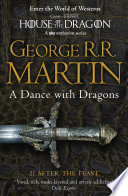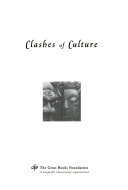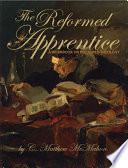Discover authors like George RR Martin with our guide. Dive into epic sagas and gripping narratives that echo the magic of Westeros.
The genius of authors like George R.R. Martin lies in their world-building abilities. Talented writers like him create unique universes and immerse their readers with mere words. It’s difficult to describe new worlds and vividly capture the reader’s imagination.
For more recommendations, you might also enjoy exploring best dystopian books, authors like George Orwell, best science fiction books.
Table of Contents
Open Table of Contents
Must-Read Authors Like George RR Martin
1. J.R.R. Tolkien
J.R.R. Tolkien is one of the most famous fantasy authors of all time
_Time Magazine_labeled Martin the “American Tolkien,” and for good reason. Martin is a big fan of J.R.R. Tolkien’s works, so much so that his frustration over others’ “cheap” imitation of the British author’s writing compelled him to start his own series.
Tolkien’s breakthrough novel was The Hobbit, initially released in 1937. This bedtime story for his kids became the foundation for the epic The Lord of the Ring. The latter was not just a literary phenomenon but also a cinematic sensation. With Peter Jackson’s direction, the tale collected a global fanbase and multiple Academy Awards.
Tolkien’s greatest feat is his high fantasy and timeless literature. To this day, they still inspire many, even after 50 years of his passing. Rooted in intricate mythology and world-building, Tolkien’s tales are truly befitting of their stardom status.
“There is nothing like looking, if you want to find something. You certainly usually find something, if you look, but it is not always quite the something you were after.”
J.R.R. Tolkien, The Hobbit
2. Joe Abercrombie
Joe Abercrombie started his career as a film editor
A leading fellow in the grimdark genre is Joe Abercrombie. This best-selling British writer excels in action scenes and realism. His debut novel, The Blade Itself, was released in 2006. It was also the first installment of his debut trilogy, _The First Law _– a fast-paced fantasy battle spanning five days.
He has received many accolades for his continued contribution to young adult fiction. This includes the Locus Award for Best First Novel and the Ravenheart Award. Abercrombie has a knack for subverting reader expectations – he never sticks to the predictable paths of what it means to be a hero or a villain. Another excellent work from him is Best Served Cold. It’s a revenge-driven stand-alone novel.
“The more you learn, the more you realize how little you know. Still, the struggle itself is worthwhile. Knowledge is the root of power, after all.”
Joe Abercrombie, The Blade Itself
3. Roger Zelazny
Roger Zelazny’s first-ever published work was A Rose for Ecclesiastes
Roger Zelazny’s works undeniably pushed the boundaries of speculative fiction. This push eventually evolved the expectations for fantasy and sci-fi writing. As a skilled author, he focused on contemporary themes delivered through eloquent prose and allusions.
Zelazny’s science-fantasy novel Lord of Light borrowed Hindu mythology and bagged the 1968 Hugo Award. Then there’s the Chronicles of Amber Series, a ten-book saga showing Zelazny’s talent crafting alternate realities.
“I’m very gullible when it comes to my own words. I believe everything I say, though I know I am a liar.”
Roger Zelazny, Lord of Light
4. Steven Erikson
Steven Erikson is the pen name for Steve Rune Lundin
Steven Erikson didn’t want his two decades of experience as an anthropologist and archaeologist to go to waste. So what did this Canadian novelist do? He created an epic fantasy series – The Malazan Book of the Fallen.
The collection debuted with Gardens of the Moon, a successful kick-off that earned Erikson the 2000 World Fantasy for Novel and Locus Award for Best First Novel. This 10-book franchise is noted for its unusual plot structure and high magic elements.
In his stories, Erikson utilizes his knowledge of cultures and civilizations, such as in Malazan’s eighth installment, Toll the Hounds. The book boasts of a richly woven narrative packed with action and drama that takes full advantage of Erikson’s background.
“Power is immaterial. One does not need to exert influence to exist.”
Steven Erikson, Gardens of the Moon
5. Patrick Rothfuss
Patrick Rothfuss is best known for his The Kingkiller Chronicle trilogy
At age 34, Patrick Rothfuss published his debut work, _The Name of the Wind._It’s the first book of his fantasy trilogy, _Kingkiller Chronicle._It also earned him the 2007 Quill Award and Publishers Weekly Best Book of the Year. This series introduces a magic system that is almost scientific in its precision. It’s similar to how Martin’s_Game of Thrones_presents his Known World – via political ties and ambitions.
Rothfuss’ storytelling skills don’t stop at novels. He also partnered with inXile Entertainment in the video game Torment: Tides of Numenera. Here, the main character (The Nameless One) forgets everything when killed in-game.
“It’s like everyone tells a story about themselves inside their own head. Always. All the time. That story makes you what you are. We build ourselves out of that story.”
Patrick Rothfuss, The Name of the Wind
6. Guy Gavriel Kay
Guy Gavriel Kay worked on J.R.R. Tolkien’s The Silmarillion
Guy Gavriel Kay gained prominence in 1984 with his first book,The Summer Tree. The novel also began his _The Fionavar Tapestry_trilogy that tested the bounds of speculative fiction. Here, the Canadian author delves into the struggle between free will and fate, coupled with high fantasy and historical elements.
One of his noteworthy stand-alone novels is a timely piece of literature called _Tigana,_set in medieval Italy. It draws concepts similar to Martin’s political turmoils and morally gray characters. _Tigana_tells the story of a group fighting for their province, their losses, oppression, and survival. Kay has received the Aurora Award and the International Goliardos Prize.
“There are no wrong turnings. Only paths we had not known we were meant to walk.”
Guy Gavriel Kay, Tigana
7. Suzanne Collins
Suzanne Collins wrote screenplays for Else Holmelund Minarik’s Little Bear
Though her debut novel, _Gregor the Overlander,was published in 2003, it was only five years later that Suzanne Collins would enjoy immense popularity. Her 2008 book and first installment of her most popular trilogy, The Hunger Games, _welcomes readers to a dystopian world where fighting to the death is used as entertainment. Through the series, Collins critiques social injustice and power imbalance issues. It became a prominent novel and a film series, with the first four movies earning $2.96 billion.
Both Collins and Martin excelled in captivating readers with fictional but never impossible literature. Their complex characters, social commentary, and deep dives of the human condition make their works deserving of blockbuster adaptations. “Kind people have a way of working their way inside me and rooting there.”
Suzanne Collins, The Hunger Games
8. Brian Staveley
Brian Staveley writes popular epic fantasy novels
As a teacher, Brian Staveley busied himself with history, literature, philosophy, and religion for a good decade. With everything he learned in his teaching career, Staveley decided to share a fantasy realm with intricate lore and mysterious forces.
In 2014, he finally had the opportunity to produce his debut novel, The Emperor’s Blades. The American fantasy writer imbued this work of his with fast-paced scenes, teeming intrigue, and, of course, loyalty versus betrayal. This book, a part of the_Chronicle of the Unhewn Throne _trilogy, won the 2018 David Gemmell Morningstar Award for Best Fantasy Newcomer.
Staveley’s penchant for detailed world-building, morally ambiguous characters, and political drama keeps him close to Martin’s style. His prequel novel, Skullsworn, is another fan favorite that details the backstory of his main series’ antagonists.
“Easier to recall a loosed falcon than a spoken word.”
Brian Staveley, The Emperor’s Blades
9. David Eddings
David Eddings is an American author of immersive fantasy tales
David Eddings’s breakthrough came with the 1982 publication of Pawn of Prophecy. It’s the first in the five-part series,_The Belgariad__._It set the stage for an orphaned farmboy, Garion, and his quest for the Orb of Aldur.
While Eddings may not have received mainstream awards similar to Martin’s, fantasy literature enthusiasts often mention and discuss his work. Fans commend his skills in maintaining a 7,000-year history in his series – something that only Martin and Tolkien can outdo. Eddings’ signature narrative of magic, prophecy, and multiple universies makes his work an absolute must-read for any fantasy devotee.
“But there’s a world beyond what we can see and touch, and that world lives by its own laws. What may be impossible in this very ordinary world is very possible there, and sometimes the boundaries between the two worlds disappear, and then who can say what is possible and impossible?”
David Eddings, Pawn of Prophecy
10. Stephen R. Donaldson
American sci-fi and fantasy fiction novelist Stephen R. Donaldson is perhaps best known for his The Chronicles of Thomas Covenant Series
Stephen R. Donaldson shared his first novel in 1977, titled Lord Foul’s Bane. Here, readers get to meet an outcast leper named Thomas Covenant. He has nothing going on until he’s transported to a place he’s meant to save. This premise only opens for a fascinating read as Thomas is a deeply flawed man.
Despite facing initial rejections (47 rejections, to be exact), _Lord Foul’s Bane_became an international bestseller. Eventually, Donaldson had the pleasure of penning ten more novels for the series. His works have also garnered him prestigious accolades. This includes Locus All-Time Best, Mythopoeic Awards, and NPR’s Top 100 Science-Fiction Fantasy Books.
Donaldson’s works are a literary feast for those who relish exploring the psychological depth of characters. His narratives are rich, provocative, and defy conventional fantasy tropes – something Martin is also guilty of.
“For faith and courage are the greatest gifts that we can give to our descendants. And the Land holds mysteries of which we know nothing mysteries of hope as well as of peril.”
Stephen R. Donaldson, Lord Fooul’s Bane
Frequently Asked Questions
What’s the difference between fantasy and science fiction?
Fantasy typically involves magical elements, supernatural creatures, and worlds that don’t follow our natural laws, while science fiction explores futuristic technology, space travel, and scientific concepts. Fantasy often looks backward to myth and legend, while sci-fi looks forward to possibilities.
What makes a great fantasy or science fiction book?
Great fantasy and sci-fi books feature well-developed worlds, consistent internal logic, compelling characters, and themes that resonate beyond the genre elements. They should transport readers while telling meaningful stories about human nature and society.
Are fantasy and science fiction books just escapism?
While fantasy and sci-fi can provide escapism, the best books in these genres use their settings to explore real-world themes, social issues, and human nature. They can offer fresh perspectives on familiar problems through their unique contexts.
Why should I read fantasy or science fiction?
Reading fantasy and sci-fi expands your imagination, introduces new ideas and perspectives, and can provide insights into human nature and society through different lenses. These genres often tackle complex themes in accessible and entertaining ways.





